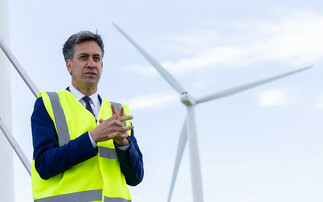Jane Burston finds reports of the UK's declining voice have been exaggerated
Commentary on negotiations, from the Doha round of world trade talks to the future of the eurozone, often suggests that the UK no longer has much negotiating power.
Facts would seem to back that up here at the climate talks in Durban, where, due to the increase in pollution from rapidly industrialising countries, the EU is now only responsible for 12 per cent of global emissions. The UK itself represents only two per cent of global emissions.
Moreover, the UK delegation size has decreased considerably, from 70 two years ago in Copenhagen to around 45 this year.
Yet the UK still punches above its weight. Not least due to its expertise: Pete Betts, one of the UK Heads of Delegation, is leading half of the negotiations for the EU, and the DECC team is well supported by colleagues working from the UK.
It also has a lot to do with strategic interventions, like the collection of reports released by DECC and the Met Office Hadley Centre yesterday on Climate: Observations, Projections and Impacts.
There are 24 country-specific reports in total, commissioned to get the latest and most robust scientific assessment of the likely impacts on these countries, which are a range of developing and developed nations.
Launching the reports, Secretary of State for Energy and Climate Change Chris Huhne said: "One of the things that struck me in Cancun is the need for people to engage in what climate change means for them."
And this is what the report is all about: making it personal. Each report contains projections and a description of future climate conditions.
The hope is that this will push developed and developing countries that are not acting significantly to mitigate dangerous climate change to recognise that they too are at risk. The reports are also aimed at supporting developing countries in building a negotiating position based on knowledge of likely impacts.
Countries covered by the reports seem to be taking it very seriously. Bangladesh's Minister for the Environment, Dr Hasan Mahmud, said: "This report will contribute significantly to our national policies."
You can also read what you will into the fact that only 23 of the 24 reports were released; the Canadian report has been held back until the country is "comfortable" with it, and will be released in the new year.
Canada has been widely criticised in the negotiations for blocking a move to a second commitment period for the Kyoto Protocol. No doubt it would be unhelpful for Canada's press to cover the likely climate change impacts on its own country at this point.
Jane Burston is founder and director of offsetting company Carbon Retirement






